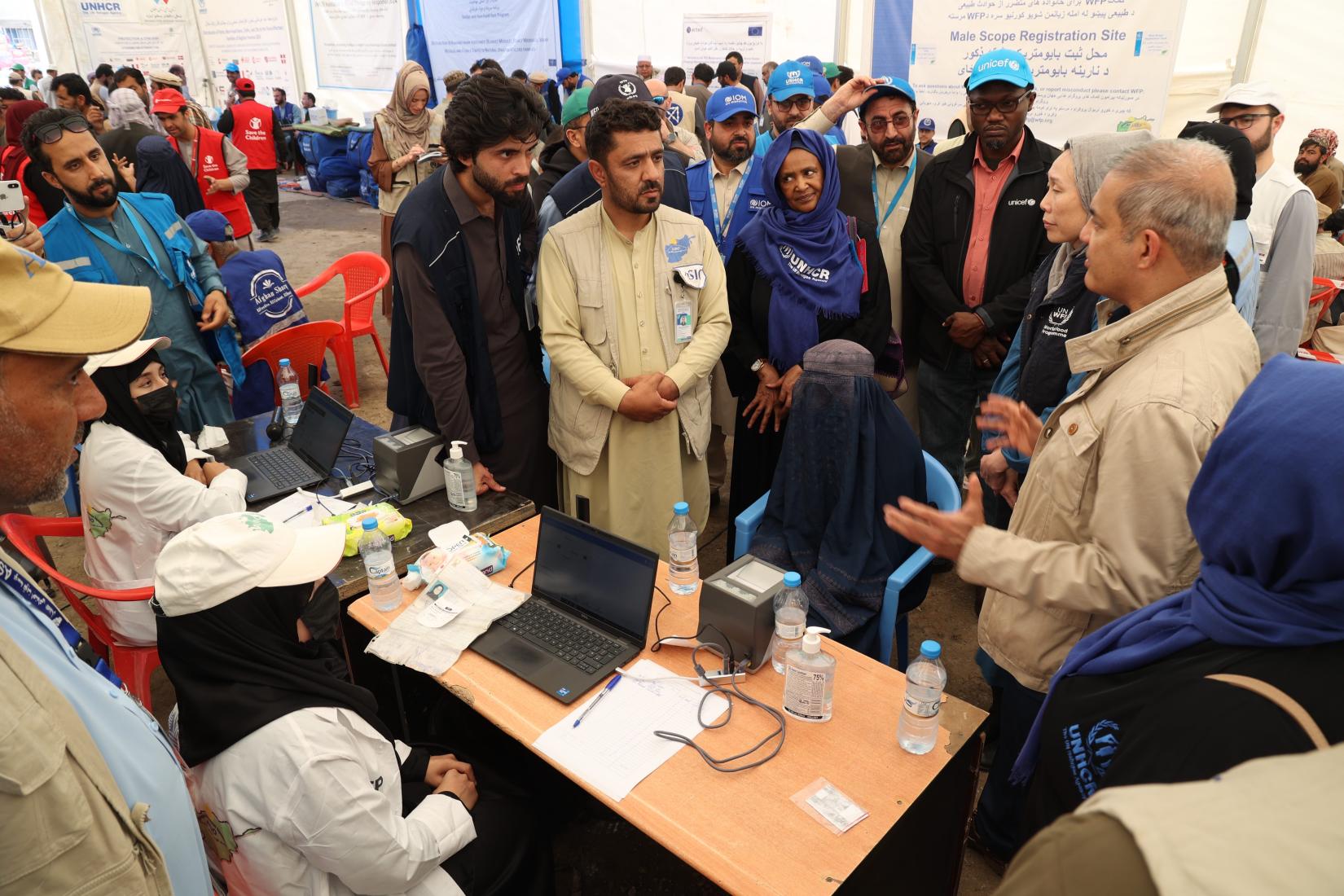INTERNATIONAL COMMUNITY MUST ACT NOW: 1 MILLION RETURNING AFGHANS IN 2025
26 June 2025
INTERNATIONAL COMMUNITY MUST ACT NOW: 1 MILLION RETURNING AFGHANS IN 2025

KABUL, 26 June 2025 - Afghanistan is facing a deepening humanitarian crisis as over one million Afghans have returned this year to a country already strained by climate shocks and limited basic services. The United Nations warns that current humanitarian assistance reaches only a fraction of those in need.
“Every returnee deserves safety and dignity. But without urgent support, we risk seeing families slide deeper into poverty and despair,” said United Nations Deputy Special Representative of the Secretary-General in Afghanistan, Resident and Humanitarian Coordinator, Mr. Indrika Ratwatte.
“The window to prevent a full-scale humanitarian disaster is closing fast. Immediate and substantial funding is critical to ensure sustainable reintegration and prevent renewed displacement through dangerous migration routes—developments that could destabilize the region.”, he warned.
Afghanistan remains one of the world’s most complex humanitarian environments—a fragile, post-conflict nation grappling with intersecting crises: climate change, mass displacement, and entrenched poverty. For decades, it has served simultaneously as a country of origin, transit, and refuge.
Now, return flows from Pakistan and Iran—traditional host countries for Afghan refugees—are overwhelming available resources. Most returnees arrive with no assets, limited access to services, and no job prospects, increasing the risk of further instability.
In 2024, with the support of the international community, the United Nations and partners provided US$183 million in medium-term support, including housing, livelihoods, job creation, and essential services, reaching over 3 million returnees and host communities, which contributed to creating social cohesion and local stabilization. Additionally, humanitarian partners assisted over 460,000 returnees – from Pakistan and Iran – with emergency assistance. Unfortunately, due to global funding shortfalls, this support has been significantly scaled down in 2025.
“These returnees are going back to communities already under strain,” said Ratwatte. “If we cannot support their reintegration, we risk triggering a renewed cycle of out-migration.”
Afghanistan’s displacement crisis remains acute in 2025. Over seven million Afghans continue to live abroad, primarily in Pakistan and Iran. So far this year, more than 282,000 Afghans have returned from Pakistan—22% are adult women and 57% are children, many of whom are visiting their ancestral homeland for the first time. Women head 17% of returning households from Pakistan.
From Iran, over 605,000 Afghans have returned in the last 6 months. 66% are adult men, 24% are children (sex-disaggregated data unavailable), and 10% are adult women.
Data shows that nearly 80% of returnees from Iran had left Afghanistan in search of better economic opportunities, while most returnees from Pakistan had fled past violence, conflict, or persecution.
“After decades in exile, Afghans are once again being uprooted, many arrive with nothing, to a homeland they barely know” said Arafat Jamal, UNHCR Representative in Afghanistan.
“We urgently call on the international community to respond—not just with emergency aid, but with long-term support. Sustainable reintegration is essential to end the cycle of instability. The time for joint action is now.”, stressed UNHCR Representative.
Further compounding the crisis, regional instability—particularly the fallout from the Israel-Iran conflict—and shifting host country policies have accelerated returns, overwhelming Afghanistan’s already fragile humanitarian and development systems.
The current scale and pace of returns, especially from Iran, are putting enormous pressure on border services and reintegration systems.
“The vast majority of returnees are undocumented. Every day, families arrive with little more than the clothes on their backs, urgently needing shelter, healthcare, and protection. Humanitarian partners are ready to respond, but we need the international community to step up with the funding required to meet this challenge.”, said Mihyung Park, IOM Afghanistan Chief of Mission.
Current funding levels remain far below what is needed to meet the scale of these unprecedented returns. The UN emphasizes that timely investment now could be the difference between regional stability and further turmoil.
***
For more information, please contact:
Press contact: spokesperson-unama@un.org








